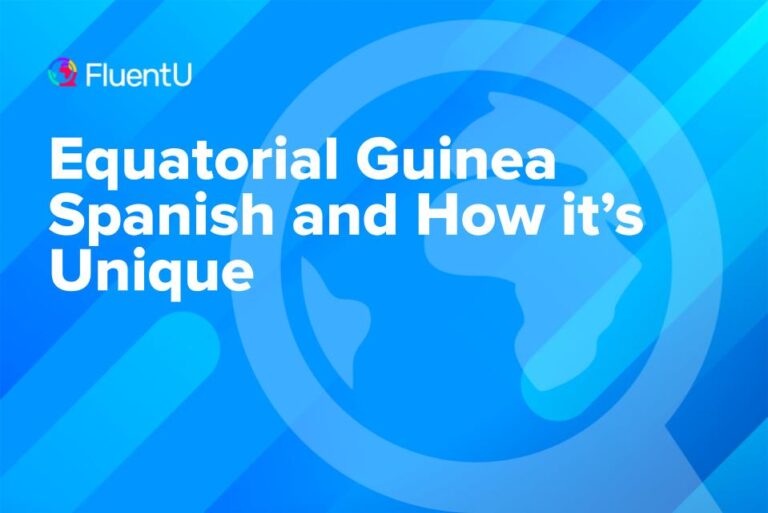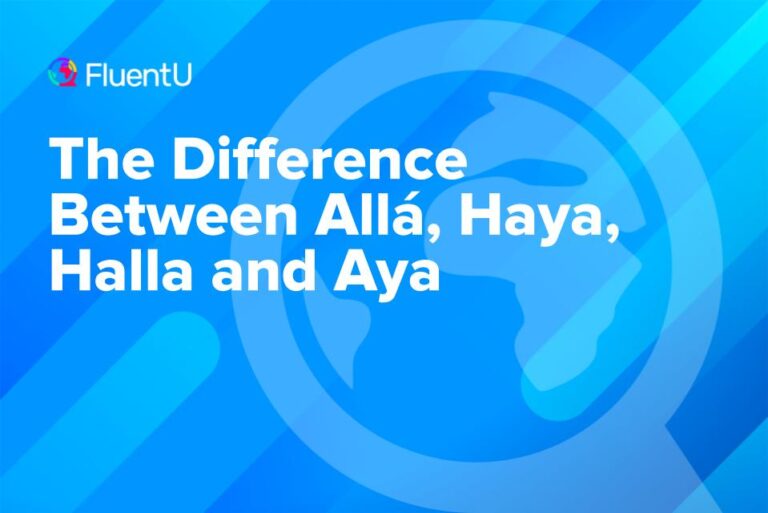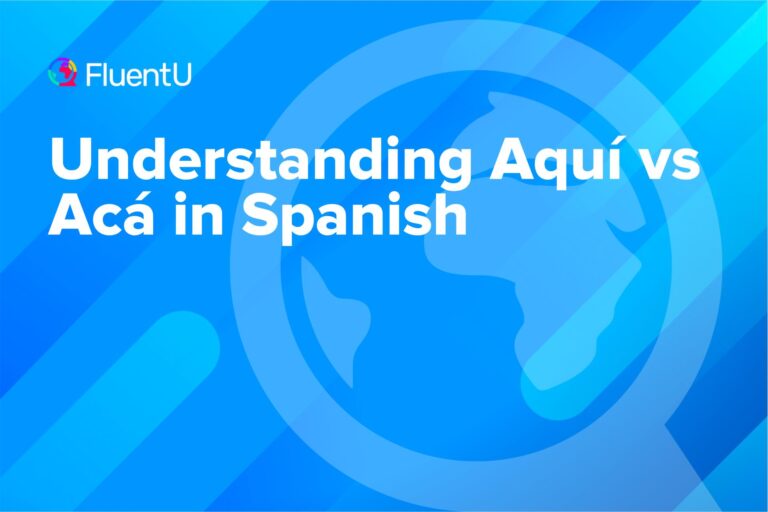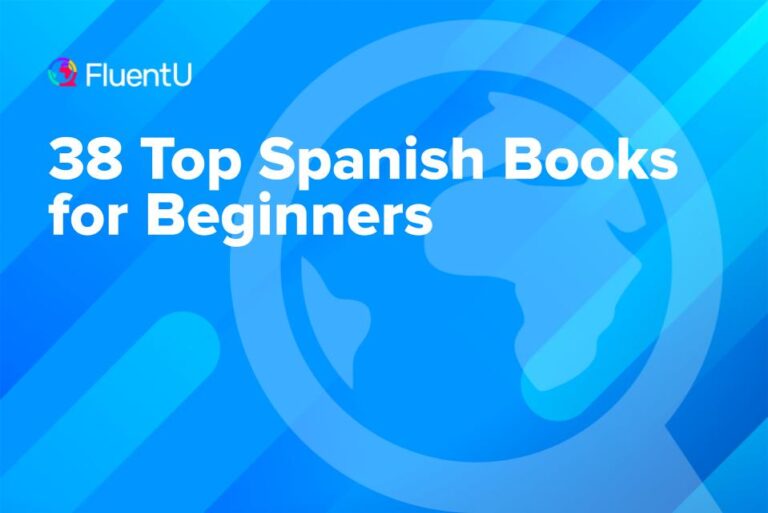Contents
- 1. Chamo / Chama
- 2. Pana
- 3. Chévere
- 4. Tengo ratón
- 5. ¡Está pelú’o!
- 6. Chivo
- 7. ¡Coño!
- 8. Burda
- 9. Bolo
- 10. ¡Epa!
- 11. Chinazo
- 12. Perico
- 13. Echar los perros
- 14. ¡Ladilla!
- 15. Vaina
- 16. Vale
- 17. Marico / Marica
- 18. Arrecho / Arrecha
- 19. Pela bolas
- 20. Atraparse con los kilos
- 21. Rumbear
- 22. Pata en el suelo
- 23. Tropicalizado
- 24. Carajito / Carajita
- 25. Sapo
- 26. Guayoyo
- 27. Echarle pichón
- 28. Tipo tranquilo
- 29. A pata de mingo
- 30. Momentico
- 31. Guachimán
- 32. Hacer ojitos
- 33. Labia
- 34. Hacer una vaca
- 35. Mango bajito
- 36. Bajarse de la mula
- 37. Arroz con mango
- 38. Jevo / jeva
- 39. Joder
- 40. Pote
- 41. Gocho / Gocha
- 42. Palo
- 43. Coronar
- 44. Jalar bolas
- 45. Candela
- 46. Chulear
- 47. Dar la cola
- 48. Anotarse
- 49. Birra
- 50. Callejear
- Why it’s Important to Learn Venezuelan Slang
- How to Practice Venezuelan Slang
- And One More Thing…
Most Common Venezuelan Slang Terms
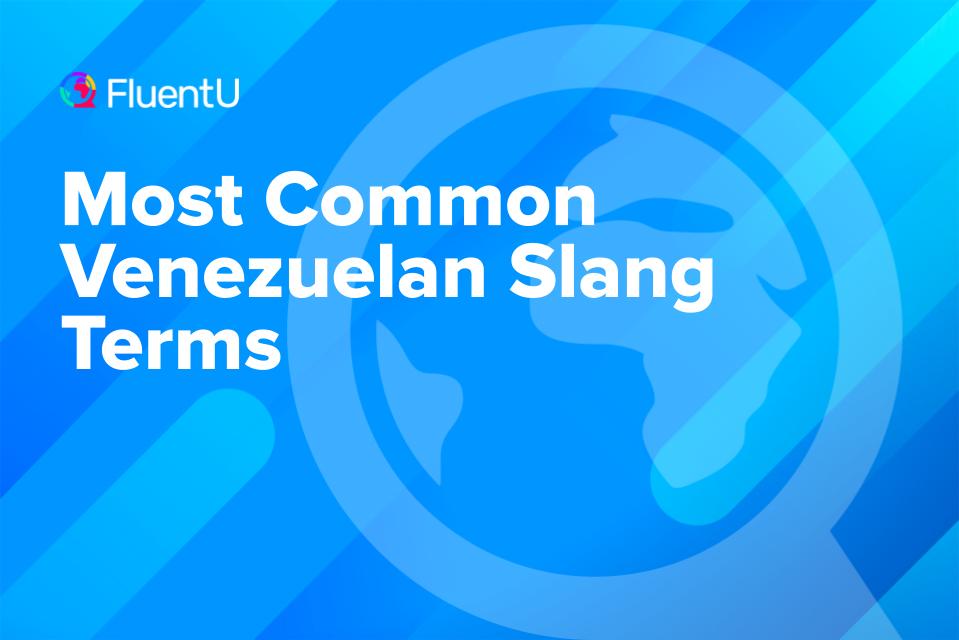
If Venezuela is on your list of must-visit destinations, you might be craving more local vocabulary. Venezuelan slang is filled with linguistic flavor and culture.
So today we’re going to learn some Venezuelan slang.
Download: This blog post is available as a convenient and portable PDF that you can take anywhere. Click here to get a copy. (Download)
1. Chamo / Chama
Basically, it means “dude,” except it can become a feminine word, too.
This is one of the phrases heard many times each day, so learn it and use it with friends, acquaintances and even children, but maybe not so much with your employer or your grandmother!
Want someone to catch the latest film with you?
¿Quieres ir al cine, chamo? (Do you want to go to the movies, dude?)
2. Pana
Similar to chamo/a, the word pana is used to refer to a close friend. It’s an informal term for a buddy or pal.
Voy a salir esta noche con mis panas. (I’m going out tonight with my pals.)
3. Chévere
This means nice, good, great, awesome—it’s a word to express a positive thought about a person, place or event.
Want to express how you feel about anything good?
There’s a positive vibe among Venezuelan amigos, so this word is used all the time. Like, all the time.
The movie you just saw? Chévere. The black bean tacos you just inhaled? Chévere.
We all know that giving authentic compliments is a sure way to make new friends, so use the word often.
4. Tengo ratón
Literally, “I have a mouse,” but don’t worry—there are no mice involved!
This tidbit is slang for “I’m hungover,” so use this if you’ve downed too many cervezas (beers) the previous evening.
You can also use the adjective enratonado/a to mean “hungover.”
5. ¡Está pelú’o!
“It’s hairy”—minus the hair.
If you claim ¡Está pelú’o! (the fast version of ¡está peludo!) you’re saying that whatever you’re trying to do is difficult.
This could apply to changing your currency, getting your coffee the way you like it or trying to cross the street before getting run over.
So if it’s not easy, feel free to mutter, “¡Está pelú’o!”
6. Chivo
Here’s a fun example of elevating something pretty ordinary to a place of linguistic honor.
If you’re up on your farm animals, you’ll know that this literally means “goat.” That’s right, the animal notorious for head-butting and can-eating.
But don’t look for a bale of hay if you hear, “El chivo tiene hambre.”
Used this way, chivo refers to a person in power. A boss. So this statement means the boss is hungry.
How skilled are you at finding the best restaurant in town?
7. ¡Coño!
This expression isn’t used only in Venezuela, but it’s so widespread and used so freely on the streets that it deserves a spot on this list.
¡Coño! translates to “Damn it!”
Okay, I can’t lie. We’re all adults here, right? Sometimes, it means a little worse.
If you want the nitty gritty on this colorful slang and a load of others, check out Gritty Spanish.
It’s a really fun resource for common—and sometimes, a bit vulgar—Spanish expressions that your high school teacher never taught you.
8. Burda
Burda can mean “a lot,” “many,” “much” or “really.” Basically, use it when there’s a large quantity of something or to emphasize a feeling or quality.
Hay burda de apps para aprender español. (There are a lot of apps to learn Spanish.)
Me gusta burda las papas fritas. (I really like french fries.)
9. Bolo
In Venezuela, the currency is bolivar. So bolo is a slang term for money. It’s best to have some in your pockets—currency exchanging can be dicey in a country experiencing upheaval.
Note that in Spanish countries outside Venezuela, this word has many different meanings. In some places, saying “Voy a mi bola” means “I’m going to go it alone,” which can be seen as antisocial.
Bolo is also a slang term for “penis” in many Spanish-speaking countries, so be certain you’re referencing your wallet correctly when you use the term.
In a market, let the merchant know you have enough cash to pay for an item by saying, “Tengo bolo para pagarlo.” (“I have enough money to pay for it.”)
10. ¡Epa!
This bit of lingo is so versatile, you’ll use it several times each day.
It’s the casual greeting English speakers know as “Hey!” or “Hi!”
In a restaurant and need to grab the waitress’ attention? Wave your hand, meet her gaze and say, “¡Epa!”
Walking down the street and see a friend? A smile and “¡Epa!” does the job.
11. Chinazo
In Venezula, the word chinazo refers to when someone unintentionally says something that comes out differently than how they intended, usually with a sexual connotation.
You know when you say something innocently and someone else responds with ‘That’s what she said”? Well, you just used a chinazo.
You could say it’s a double entendre, or a word or phrase with a double meaning. So to avoid embarrassment, learn your chinazos or you may be the butt of some jokes!
12. Perico
“¿Tienes ganas de desayunar?” (“Are you hungry for breakfast?”) makes the slang request for perico—or scrambled eggs—perfectly acceptable.
In a café, your waitress will probably serve your eggs with a side of toast and some jam.
However, requesting perico on the street could get you into trouble because you’d be looking for cocaine.
So, in the café? All good. On the sidewalk? Nope.
It’s a strange slang word because perico literally translates to “parakeet”—which has nothing to do with eggs or cocaine!
13. Echar los perros
So, literally, this expression means to “throw dogs at a person,” which makes no sense… but as a slang term, it means “to flirt with someone.”
If you’re in a club and your friend says, “Le voy a echar los perros a esa chica“ (“I’m going to flirt with that girl”) you can give him a pat on the back.
As in other languages, it just goes to show that sometimes a dog is more than a dog!
14. ¡Ladilla!
This is an all-purpose exclamation that expresses the fact that you’re annoyed that you have to do a certain thing.
Don’t want to catch the next bus? Tired of carrying your buddy’s backpack because he broke an arm?
¡Ladilla!
This is your best slang go-to expression in any case where you are annoyed.
15. Vaina
Vaina is one of the most common Venezuelan slang words and usually means “thing.” It’s extremely versatile and can refer to any object, action, person, situation, occasion…pretty much anything!
Here are just a few of the many, many ways it can be used:
No puedo ir a la fiesta, tengo muchas vainas que hacer. (I can’t go to the party, I have too many things to do).
Pásame esa vaina. (Pass me that thing.)
It can even be used to ask “What’s up?” by saying “¿Qué vaina es?”
16. Vale
You’ll hear this word all over the Spanish-speaking world, but it can mean different things depending on where you hear it.
In Venezuela, it’s most commonly used to refer to a close friend in the way we might say “pal” or buddy” in English.
This meaning is derived from valedor (guardian, protector) and can also be used in the diminutive to sound extra cute: valecito , valecita .
17. Marico / Marica
Marico or marica is a term used among friends, similar to “dude” or “bro.” It can be considered offensive in certain contexts (the feminine form marica is sometimes used to refer to a gay person), so use it with caution.
Example: “¡Qué pasa, marico!” (What’s up, dude!)
18. Arrecho / Arrecha
This adjective is usually used to mean “angry” or “upset,” but can also mean “awesome” or “amazing,” as in, “¡La nueva pelicula de Batman es arrecha!” (The new Batman movie is awesome!).
In Colombia it means sexually aroused, so pay attention to the context to get the right meaning and avoid an awkward situation if you’re traveling around South America.
This word comes from the verb arrechar which translates to “to arouse/excite,” so the sexual connotation makes sense, but when used by Venezuelans it means something is really cool or someone is really mad.
19. Pela bolas
Pela bolas (noun) or pelar bolas (verb) is used when someone’s broke or doesn’t have any money. Either they’ve temporarily run of out money, or they’re always lacking resources.
It’s also used to refer to someone who’s probably going to die soon.
Págame el pasaje mi pana, ando pelando bolas. (Pay for my ticket my buddy, I don’t have any money.)
No vayas a comprar con él, es pela bolas. (Don’t go shopping with him, he’s broke.)
Nuestro vecino es muy viejo, va a pelar bola. (Our neighbor is really old, he’s going to die soon.)
20. Atraparse con los kilos
While this phrase literally translates to “to be caught (or to catch someone) with the kilos (kilograms),” it really means to be caught (or to catch someone) red-handed, or in the act.
It’s used for talking about getting busted doing something wrong, like cheating on a partner or staying out past curfew.
Traté de ir a la fiesta, pero mis padres me atraparon con los kilos. (I tried to go to the party, but I got busted by my parents.)
21. Rumbear
Rumbear means “to party” or “to go out and have a good time.”
“Vamos a rumbear este fin de semana.” (Let’s party this weekend.)
The word rumba is a noun that means party, usually in a discoteca (club).
22. Pata en el suelo
Pata en el suelo refers to the unfortunate state of being broke or without money.
No puedo salir, estoy pata en el suelo. (I can’t go out, I’m broke.)
The literal translation is “paw on the ground.”
23. Tropicalizado
This is an adjective meaning “tropicalized” and is used to describe someone or something that’s been in Venezuela for enough time to have assimilated with or adapted to the culture.
If you’re a foreigner living in Venezuela, you might hope that people say you’ve become tropicalizado.
24. Carajito / Carajita
This word means “kid” or “child” in Venezuelan slang. It’s neutral in connotation until you put it in context. For example, you can say “¡Que carajitos tan lindos!” (What cute kids!) to refer to the kids in a positive way.
But it can also be used when a child or children are bothering someone or being naughty. If a parent catches their kid drawing on the walls, they might yell, “Que haces, carajito!?” (What are you doing, kid?!)
25. Sapo
Sapo means “snitch” or “tattletale.” It’s a derogatory term for someone who informs on others or spreads rumors.
Don’t get caught being a sapo!
26. Guayoyo
Guayoyo refers to black coffee without milk or any other additives. The word also refers to the traditional Venezuelan way of preparing coffee, which is by filtering the coffee through a cone of cloth.
“Un guayoyo caliente en la mañana me despierta.” (A hot black coffee in the morning wakes me up.)
27. Echarle pichón
This phrase means to strive or work hard for something. So if a friend or family member is competing for something, you can encourage them by yelling “¡Échale pichón!”
28. Tipo tranquilo
Tipo tranquilo is used to describe a situation where you can relax and spend a nice, chill night. Your Venezuelan friend might invite you to a get-together at their house using this phrase.
Now you’ll know they don’t mean a big rumba, just a relaxed night in.
29. A pata de mingo
This phrase means that you’re really close to or near a certain location. It’s also used to say that something or someone is close to you.
Estoy a pata de mingo de tu casa. (I’m really close to your house.)
30. Momentico
While momentico is the diminutive of momento (moment), it actually means the opposite. When someone says they’ll arrive in un momentico, it really means they’ll take some time to get there.
So if your friend says “Llego en un momentico” (I’ll arrive momentarily), don’t expect them to show up right away.
31. Guachimán
This word refers to a security guard or watchman of an establishment.
If you’re living in Venezuela and going out to rumbear (party) in the discotecas (clubs), you may want to make friends with the guachimanes (security guards) there.
32. Hacer ojitos
This is like the English phrase “to make eyes at someone.” It means to make a person notice that you want something with him or her.
Esa chica me estuvo haciendo ojitos toda la noche. (That girl was making eyes at me all night.)
33. Labia
Labia is used in Venezuela to mean that someone speaks well or uses the lexicon well, usually in a charming or convincing way.
So if your friend tells you to “meterle la labia” with someone, it just means speak nicely and try to charm them.
Spanish-speaking countries also use “tener labia” to say that someone is a smooth talker, as in “Manuel tiene labia.” (Manuel is a smooth talker.)
34. Hacer una vaca
This phrase isn’t just used in Venezuela, but it’s one you should know if you’re going there. Hacer una vaca means to raise money among all those interested in buying something or contributing the money to something.
It’s often used when a group of friends wants to buy a case of beer or a bottle of liquor. So if you’re asked to hacer una vaca, now you know what you’re agreeing to!
35. Mango bajito
Mango bajito is a bit like “low-hanging fruit” in English. It refers to an opportunity that can’t be missed.
Me dio un precio baratísimo, voy a agarrar ese mango bajito. (He gave me a super cheap price, I’m going to grab this opportunity.)
36. Bajarse de la mula
While it literally means “to get off the mule,” this phrase is used in Venezuela to mean that you have to pay for a product or service.
If you want to tell your friends to pay up, you can say “Bájense de la mula.” Hopefully they’ll give you the money after they get over being wildly impressed by your use of Venezuelan slang!
37. Arroz con mango
This phrase literally means “rice with mango,” but actually has nothing to do with food (unless you’re talking about a situation in the kitchen).
It’s used to describe a messy or chaotic situation. It implies disorder or a confusing state of affairs.
Now you have a new phrase to use to describe someone’s relationship status: “Es un arroz con mango.” (It’s complicated.)
38. Jevo / jeva
Jevo or jeva is a term used to refer to a boyfriend or girlfriend.
“Mi jeva y yo vamos al cine esta noche.” (My girlfriend and I are going to the movies tonight.)
39. Joder
Joder means “to bother” or “to annoy.” It can also be used as an expression of frustration.
“Deja de joder, necesito concentrarme.” (Stop bothering me, I need to concentrate.)
Just be careful of the situation in which you use this word, as it’s used as a certain swear word starting with “f” in some countries and could be taken offensively (or sexually).
40. Pote
Pote literally means “pot” and is used to refer to a car’s gas tank.
“El pote del carro está vacío, necesitamos gasolina.” (The car’s gas tank is empty, we need gas.)
41. Gocho / Gocha
Gocho or gocha is used to refer to someone from the Andes region of Venezuela. Unfortunately, it’s been used as a derogatory term by other Venezuelans to make fun of their way of speaking or their way of being.
While it’s good to know what it means, I don’t recommend using this word to avoid offending anyone.
42. Palo
The word palo is used in a few different ways. Palos can mean millions of bolivars, or bolívares, the currency of Venezuela.
Un palo de is used as an amplifier, such as Cayó un palo de agua (It poured / There was a huge downpour) or Es un palo de hombre (He’s a great guy).
The phrase palo de agua is also used to describe someone who tries to flirt with and win over several people at the same time. When a friend has fallen for yet another person, you may say that they’re palo de agua to mean that they fall for everyone, just like the rain falls on everyone.
43. Coronar
Coronar literally means “to crown” but is used in multiple Spanish-speaking countries to mean, basically, to score with someone. If someone is flirting with you all night in Venezuela, they may be trying to coronar.
44. Jalar bolas
This verb phrase is used to talk about when a person flatters someone else or tries hard to please them in order to get something in return. In English, we might say the person is “sucking up” to or “brown-nosing” them.
You can also use the word jalabolas to refer to the person.
Juan siempre le jala bolas a la profe para sacar buenas notas. (Juan always sucks up to the teacher to get good grades.)
45. Candela
Candela translates to “candle” but is used to refer to fire or a difficult situation.
Esto está en candela, necesitamos resolverlo rápido. (This is a difficult situation, we need to solve it quickly.)
When referring to a person, it means that they’re lively or cheerful.
46. Chulear
This verb is used in a few different ways. It can mean to rob or take advantage of someone, to tease or mock someone, or to show off.
Mis amigos me chulean por llegar temprano a las fiestas. (My friends make fun of me for being early to parties.)
47. Dar la cola
So if you need a ride, you can ask, “¿Me das la cola?” (Will you give me a ride?)
48. Anotarse
While anotarse really means “to sign up,” it’s used in Venezuela to say that you want to or can go to a place or event.
Vamos a la playa manana, ¿te anotas? (We’re going to the beach tomorrow, are you in?)
49. Birra
I realize that a lot of these terms are about partying, but hey, it’s slang. Birras are alcoholic beverages and usually refer specifically to beers. This term is used in many Spanish-speaking countries, so you won’t just hear it in Venezuela.
¿Quieres salir por unas birras esta noche? (Do you want to go out for some beers tonight?)
50. Callejear
Callejear comes from the word calle or “street” and means “to wander around” or “to walk the streets aimlessly.”
Me gusta callejear por el centro de la ciudad. (I like to wander around downtown.)
Why it’s Important to Learn Venezuelan Slang
Knowing the slang of any country will give you a leg up in understanding, being understood and just fitting in, whatever the situation.
If you are able to learn how Venezuelans actually speak outside of regular Spanish, you will also have a better grasp on how they see the world.
Venezuelan Spanish is a clear dialect and therefore easily accessible to learners. Still, slang fills in the cracks!
These terms will come in handy outside Venezuela too, as the local language and culture has made its way around the world.
How to Practice Venezuelan Slang
Of course the best way to learn another language will always be to practice listening to and speaking said language.
When it comes to learning slang, try and find a Venezuelan conversation partner and pay attention to how they incorporate these slang terms in their own speech. Then, you can start throwing them into your own!
If you don’t have access to someone from Venezuela to speak with, you can also immerse yourself from home.
While you may not entirely get the speaking aspect, watching and listening to Venezuelan media can be very helpful.
You can even try looking up some of these terms on YouTube, where you’ll find plenty of entertaining videos!
You can also watch these words in action with the FluentU program.
FluentU takes authentic videos—like music videos, movie trailers, news and inspiring talks—and turns them into personalized language learning lessons.
You can try FluentU for free for 2 weeks. Check out the website or download the iOS app or Android app.
P.S. Click here to take advantage of our current sale! (Expires at the end of this month)

There are many slang words that are used across different Spanish-speaking countries, so be sure to check out our list of 40+ Spanish slang words. And if you want to learn slang words specific to a certain country, you’re in luck because we’ve got quite the collection:
- Argentine slang
- Bolivian slang
- Chilean slang
- Colombian slang
- Cuban slang
- Dominican slang
- Ecuadorian slang
- Guatemalan slang
- Honduran slang
- Mexican slang
- Nicaraguan slang
- Panamanian slang
- Paraguayan slang
- Peruvian slang
- Puerto Rican slang
- El Salvadorian slang
- Uruguayan slang
Add some of these terms to your vocabulary, and you’ll make plenty of friends on your travels in Latin America.
Basic slang will help you fit in, so listen and pick up as much as you can!
Download: This blog post is available as a convenient and portable PDF that you can take anywhere. Click here to get a copy. (Download)
And One More Thing…
If you've made it this far that means you probably enjoy learning Spanish with engaging material and will then love FluentU.
Other sites use scripted content. FluentU uses a natural approach that helps you ease into the Spanish language and culture over time. You’ll learn Spanish as it’s actually spoken by real people.
FluentU has a wide variety of videos, as you can see here:

FluentU brings native videos within reach with interactive transcripts. You can tap on any word to look it up instantly. Every definition has examples that have been written to help you understand how the word is used. If you see an interesting word you don’t know, you can add it to a vocab list.

Review a complete interactive transcript under the Dialogue tab, and find words and phrases listed under Vocab.

Learn all the vocabulary in any video with FluentU’s robust learning engine. Swipe left or right to see more examples of the word you’re on.

The best part is that FluentU keeps track of the vocabulary that you’re learning, and gives you extra practice with difficult words. It'll even remind you when it’s time to review what you’ve learned. Every learner has a truly personalized experience, even if they’re learning with the same video.
Start using the FluentU website on your computer or tablet or, better yet, download the FluentU app from the iTunes or Google Play store. Click here to take advantage of our current sale! (Expires at the end of this month.)
